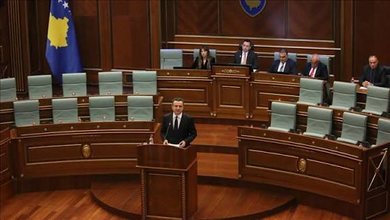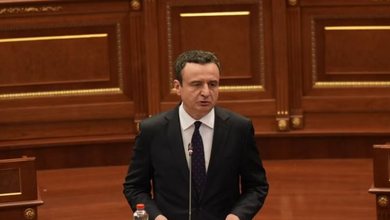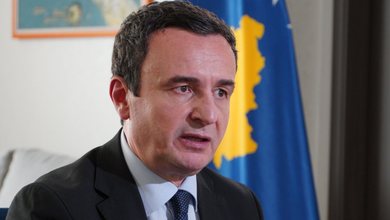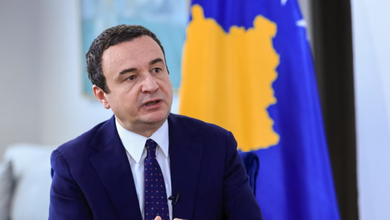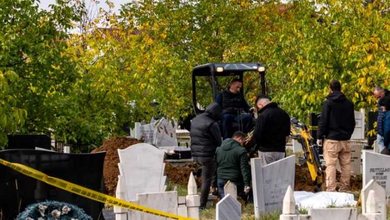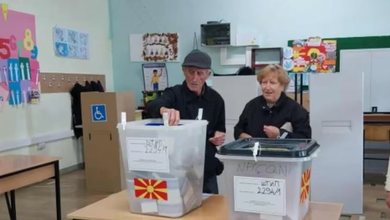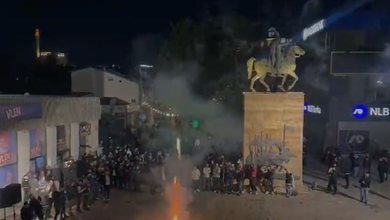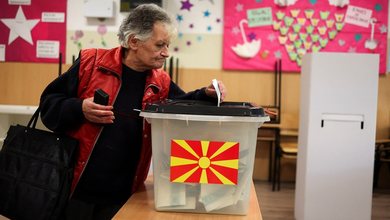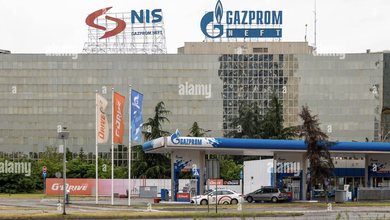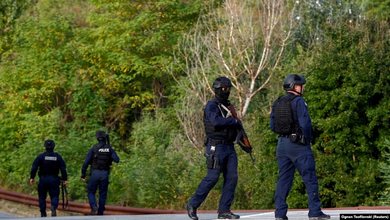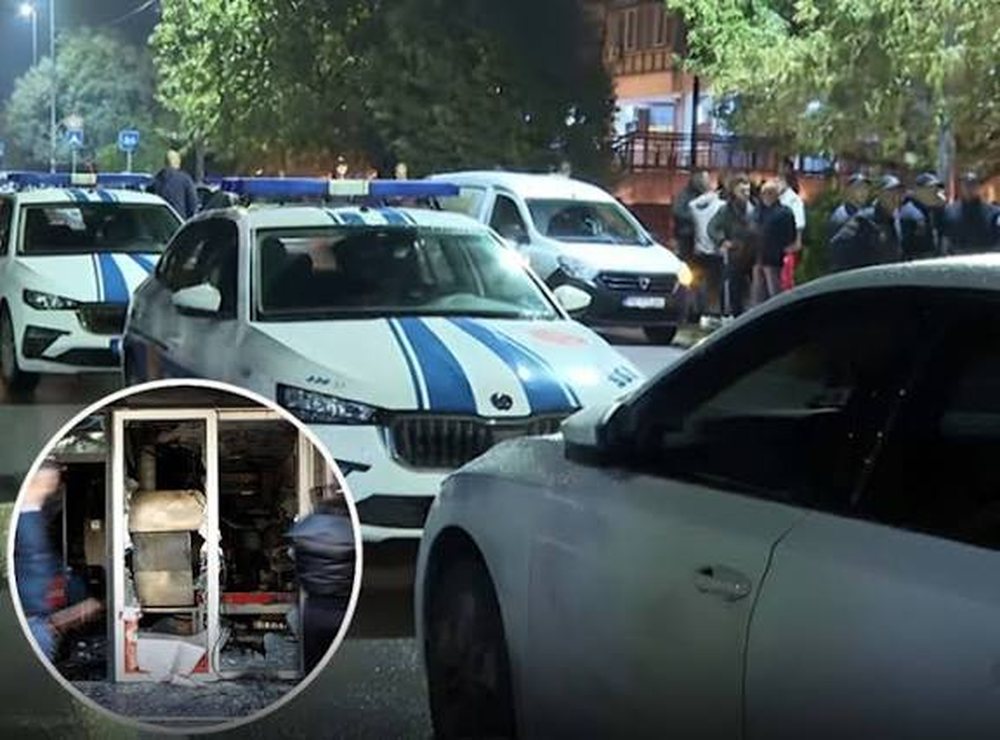
The Montenegrin government will lift the visa-free regime for Turkish citizens on Monday - through an accelerated procedure, Prime Minister Milojko Spajic announced late Sunday in a post on X.
"We would start intensive talks with Turkey to find, in the spirit of good cooperation and alliance, the best model in the interests of both sides," Spajic said.
He did not give a reason for lifting the visa-free regime.
Police operation and anti-Turkish calls
Spajic's announcement came after police during an operation in the Zabello neighborhood of Podgorica arrested about 50 Turkish citizens, including two people suspected of participating in a fight in which a Podgorica resident, MJ, was stabbed, Montenegrin police announced after 10 p.m. on Sunday.
The fight took place on the night between Saturday and Sunday in a cafe in Zabello.
During the arrests, a large group of citizens gathered and chanted hateful messages, inciting violence against Turks. Police stopped some of those present from approaching the premises where the Turkish citizens were.
The Minister of Internal Affairs, Danilo Sharanovic, also addressed the citizens, saying that it is a manipulation to say that 100,000 Turkish citizens are staying in Montenegro and explained that their number is 13,000, of which 80 have permanent residence.
On Sunday evening, a large number of police vehicles were placed in front of the Turkish Embassy building in Podgorica.
MP Boris Bogdanovic from the ruling Democratic Party, Minister Sharanovic's subject, published a photo of the arrests with the inscription: "We protect our country. We protect every home".
The police linked the arrests to, as he said, incidents with elements of violence over the last 24 hours, in which Turkish citizens temporarily staying in Podgorica participated.
The police said that they will verify the legality of their stay and if there was violence during their stay, there may be actions to cancel the dream or expel them from the country.
Of the approximately 100,000 foreigners in Montenegro, 13,400 are Turkish citizens, according to official police data. The majority are Serbian and Russian citizens, totaling about 50,000.
Turkey is one of the countries for which Montenegro has lifted visa requirements, which is why the European Commission has asked Podgorica to harmonize its visa policy with the European Union. Turkish citizens are required to have a visa to enter EU countries.
Reactions: Attack condemned and call for peace “I strongly condemn the attack,” Montenegrin President Jakov Milatović wrote on the X network, calling on the authorities to resolve the case effectively.
“At the same time, I call for calm and restraint for all citizens. There should be no room for collective guilt or stigmatization of an entire people.”
He added that everyone should be careful not to increase tensions with their messages.
"The police and the prosecution are obliged to combat hate speech and any form of intimidation. Montenegro needs a more responsible immigration policy: strong against abuses and crime, and fair to all those who respect our laws," Milatović stressed.
The Deputy Prime Minister and Minister of Foreign Affairs of Montenegro, Ervin Ibrahimović, also strongly condemned the attack. He called on “everyone in Montenegro to exercise restraint”, emphasizing that responsibility is individual.
According to him, in a European Montenegro there is no place for violence, for arbitrary actions and calls like “Kill the Turk” – calls that were heard in Podgorica, demanding an immediate reaction from the authorities.
The ruling Bosniak Party also demanded that the case be clarified and the perpetrators punished “regardless of their national affiliation”.
“Together, with great concern we condemn hate speech and chants like ‘Kill the Turk’… Montenegro must remain a country where we do not respond to violence with hatred, but with justice, and where institutions, not the streets, decide on guilt”.
The head of the Islamic Community in Montenegro, Rifat Fejzic, commented on the event in the context of the cooling of relations between Belgrade and Ankara, after the fact that in early October Turkey sent weapons to Kosovo, which Serbian President Aleksandar Vucic called “shocking” and assessed that Ankara, which is a member of NATO, does not want stability in the Balkans.
“In less than 20 days. Is Belgrade punishing Turkey through Montenegro?” Fejzic wrote on X, publishing a photo of a text with the title “Vucic attacked Turkey: We know what you are planning…”.
Part of the ruling coalition in Montenegro, mainly the parties of the former pro-Russian Democratic Front, have close ties to Belgrade and the President of Serbia, Aleksandar Vucic.
The activity of criminal groups in Montenegro
Foreign criminal groups, especially Turkish, Georgian and Russian, have become increasingly present in Montenegro in recent years, according to the Government’s Organised and Dangerous Crime Risk Assessment (SOCTA) last year.
The document does not provide details on the specific activities of Russian and Georgian criminals, while the Turks are mentioned in connection with heroin “operations”, human trafficking and money laundering.
Over the past three months, clashes between two Montenegrin criminal clans involved in international drug smuggling have escalated.
There are 11 high-risk organised crime groups registered in Montenegro, most with more than 30 members, according to the latest SOCTA report./rel


